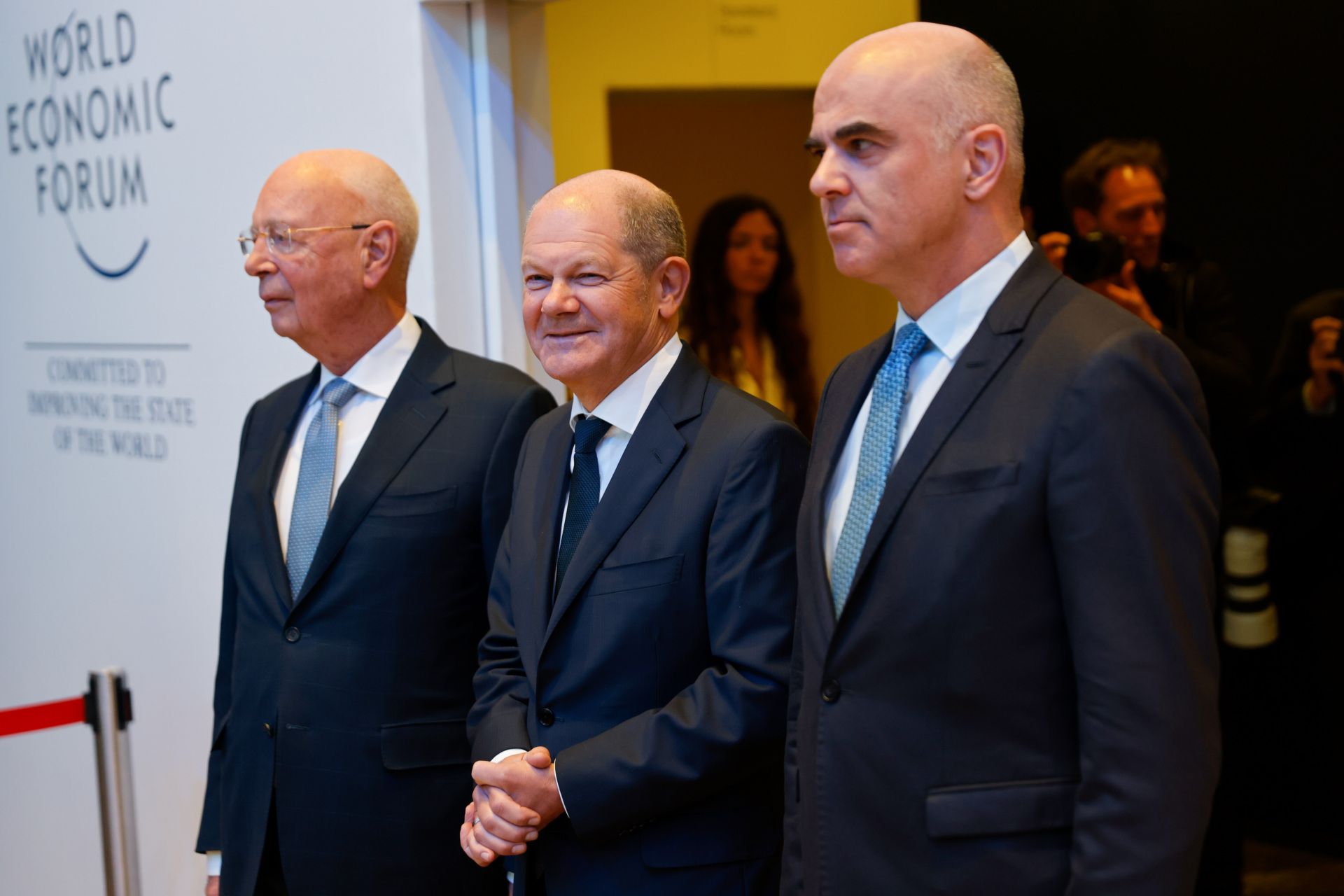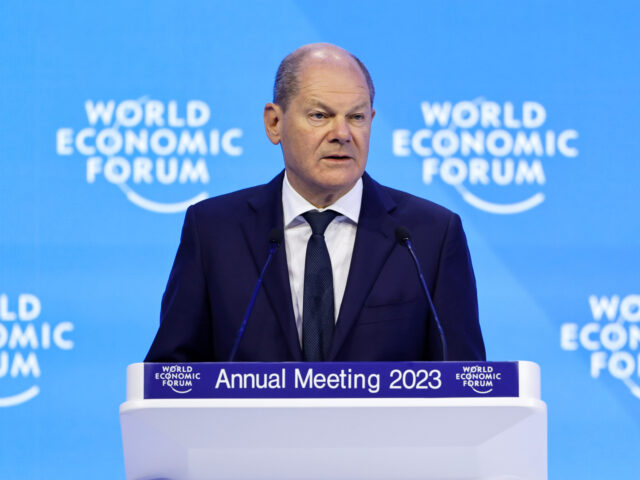German industry will benefit from the “Ukrainian economic miracle” once the reconstruction effort begins following the war with Russia, German Chancellor Olaf Scholz predicted on Wednesday.
In a speech delivered on the stage alongside German-born World Economic Forum Chairman Klaus Schwab at the annual globalist meeting in Davos, Switzerland, Social Democrat Chancellor Olaf Scholz said that he expects German companies to be at the forefront in implementing a “Marshall Plan for the long-term reconstruction of Ukraine”.
“Private-sector capital will play a key role here. I know that many companies in Germany and beyond are very aware of the opportunities that a Ukrainian economic miracle could offer to them,” the left-wing leader commented.

Klaus Schwab, executive chairman of the World Economic Forum (WEF), Olaf Scholz, Germany’s chancellor, center, and Alain Berset, Switzerland’s president, on day two of the World Economic Forum (WEF) in Davos, Switzerland, on Wednesday, Jan. 18, 2023. The annual Davos gathering of political leaders, top executives and celebrities runs from January 16 to 20. Photographer: Stefan Wermuth/Bloomberg via Getty Images
Chancellor Scholz said that he expects German industry to roll into Ukraine at a swifter pace once “the country moves toward the European Union after the end of the war.”
Yet, according to the German leader, this will only occur once “Russia’s aggression” fails, and therefore he said that his government intends on continuing to flood the country with “large quantities of arms” including “air defence systems like IRIS-T or Patriot, artillery, and armoured infantry fighting vehicles.”
This, Scholz noted, is a departure from decades of German policy, which prohibited weapons from being sent into conflict zones. Unlike others in the EU, such as Hungary’s Viktor Orbán, Scholz has been notably lacking from calling for peace negotiations between Moscow and Kyiv (Kiev), meaning that German-made weapons will likely continue to contribute to the devastation of the country for the foreseeable future.
Special Address by @OlafScholz (@Bundeskanzler). #wef23 https://t.co/iD7m2nn8ba
— World Economic Forum (@wef) January 18, 2023
Despite the economic and energy crises racking the economy, the German government has so far committed to over €5 billion in aid to Ukraine, including €2.34 billion in direct military aid, according to the German based Kiel Institute’s Ukraine aid tracker.
When the conflict between Russia and Ukraine does finally come to an end, reconstruction will likely be massively lucrative for the companies tasked with the effort. In September, Ukrainian President Volodymyr Zelensky estimated that the cost of rebuilding the country has already surpassed one trillion dollars.
“The general project of Ukrainian reconstruction will be the largest economic project in Europe of our time. The largest for several generations. Its volume is already estimated at hundreds of billions of dollars. And with the necessary modernisation of the Ukrainian infrastructure, taking into account security needs, it is more than a trillion dollars and in a fairly short term – less than ten years,” Zelensky said.
The potential for money making opportunities off the back of the suffering and devastation experienced in Ukraine has not only occurred to the German Chancellor. Perhaps unsurprisingly, BlackRock, the world’s largest asset manager with some $10 trillion on its books announced last month that it had come to an agreement with the Zelensky government to coordinate future reconstruction efforts.
BlackRock, which has been a leading force behind the left-wing social justice-style ESG (Environmental, Social, and Governance) investing scheme, said in a statement last month that it has already been providing “advisory support for designing an investment framework, with a goal of creating opportunities for both public and private investors to participate in the future reconstruction and recovery of the Ukrainian economy.”
Macron Sends ‘First Western Tanks’ to Ukraine, Followed by U.S. and Germany https://t.co/PWhXnUQKdh
— Breitbart London (@BreitbartLondon) January 6, 2023
Follow Kurt Zindulka on Twitter here @KurtZindulka

COMMENTS
Please let us know if you're having issues with commenting.